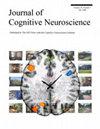Confidence and Insight into Working Memory Are Shaped by Attention and Recent Performance
IF 3
3区 医学
Q2 NEUROSCIENCES
引用次数: 0
Abstract
Working memory is capacity-limited, and our ability to access information from working memory is variable, but selective attention to working memory contents can improve performance. People are able to make introspective judgments regarding the quality of their memories, and these judgments are linked to objective memory performance. However, it remains unknown whether benefits of internally directed attention on memory performance occur alongside commensurate changes in introspective judgments. Across two experiments, we used retrospective cues (retrocues) during working-memory maintenance to direct attention to items in memory. We then examined their consequence on introspective judgments. In the second experiment, we provided trial-wise feedback on performance. We found that selective attention improved confidence judgments and not just performance of the probed item. We were also able to judge participants' genuine insight into working-memory contents through the correlation between confidence judgments and memory quality. Neurophysiologically, alpha desynchronization correlated first with memory error and then confidence during retrocueing, suggesting a sequential process of attentional enhancement of memory contents and introspective insight. Furthermore, we showed that participants can use feedback on the accuracy of confidence judgments to update their beliefs across time, according to performance. Our results emphasize flexibility in working memory by showing we can selectively modulate our confidence about its contents based on internally directed attention or objective feedback.对工作记忆的信心和洞察力是由注意力和最近的表现塑造的。
工作记忆的容量是有限的,我们从工作记忆中获取信息的能力是可变的,但选择性地关注工作记忆的内容可以提高表现。人们能够对自己的记忆质量做出内省判断,而这些判断与客观记忆表现有关。然而,内部定向注意力对记忆表现的好处是否与内省判断的相应变化同时发生,目前尚不清楚。在两个实验中,我们在工作记忆维持过程中使用回溯线索(retrocues)将注意力引导到记忆中的项目上。然后我们检查了它们对内省判断的影响。在第二个实验中,我们提供了有关性能的试用反馈。我们发现选择性注意提高了信心判断,而不仅仅是调查项目的表现。我们还能够通过自信判断和记忆质量之间的相关性来判断参与者对工作记忆内容的真实洞察。在神经生理学上,在回溯过程中,α去同步首先与记忆错误相关,然后与信心相关,表明记忆内容和内省洞察力的注意增强是一个连续的过程。此外,我们表明,参与者可以根据表现,利用对信心判断准确性的反馈,随着时间的推移更新他们的信念。我们的研究结果强调了工作记忆的灵活性,表明我们可以根据内部定向注意力或客观反馈有选择地调节我们对工作记忆内容的信心。
本文章由计算机程序翻译,如有差异,请以英文原文为准。
求助全文
约1分钟内获得全文
求助全文
来源期刊
CiteScore
5.30
自引率
3.10%
发文量
151
审稿时长
3-8 weeks
期刊介绍:
Journal of Cognitive Neuroscience investigates brain–behavior interaction and promotes lively interchange among the mind sciences.

 求助内容:
求助内容: 应助结果提醒方式:
应助结果提醒方式:


